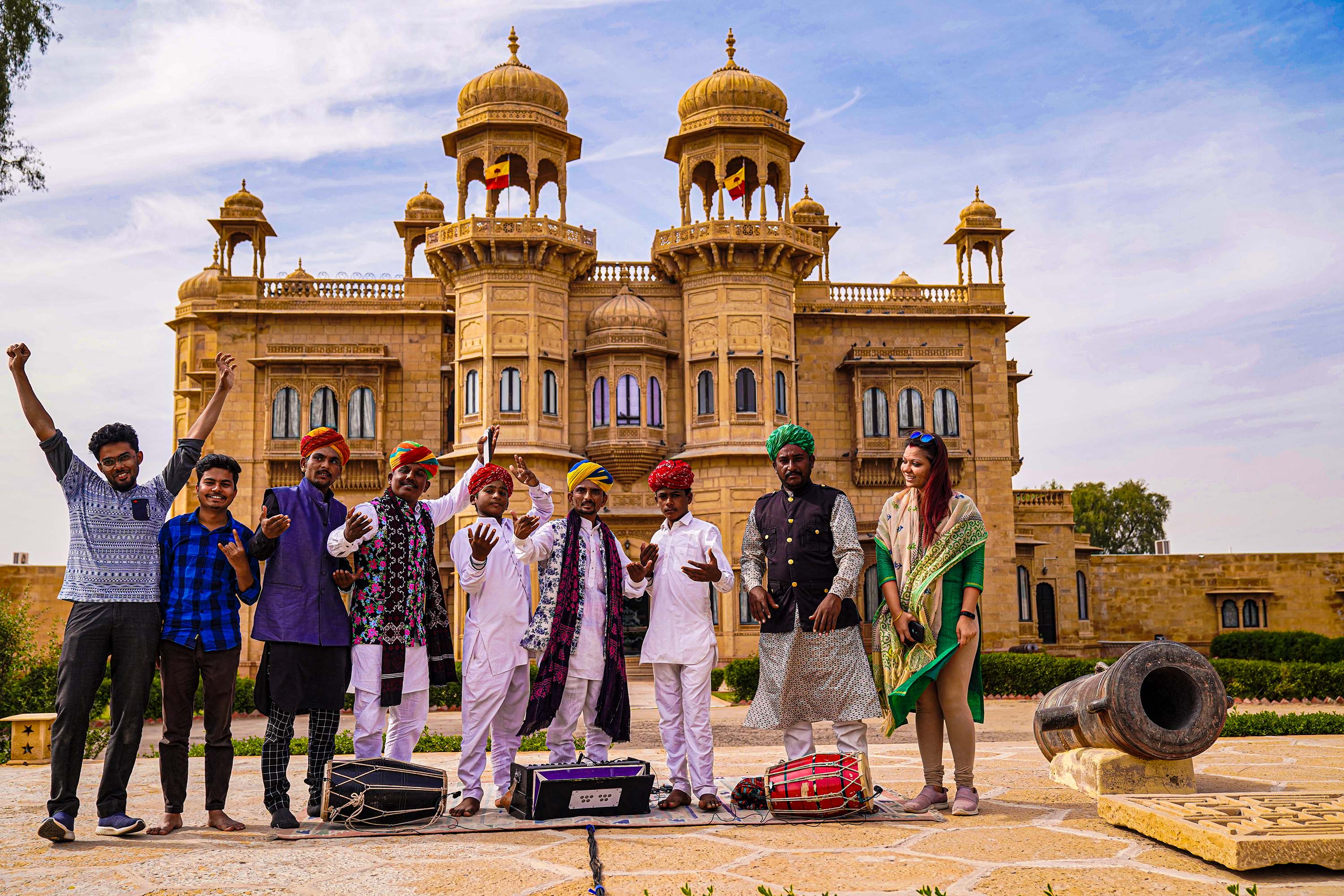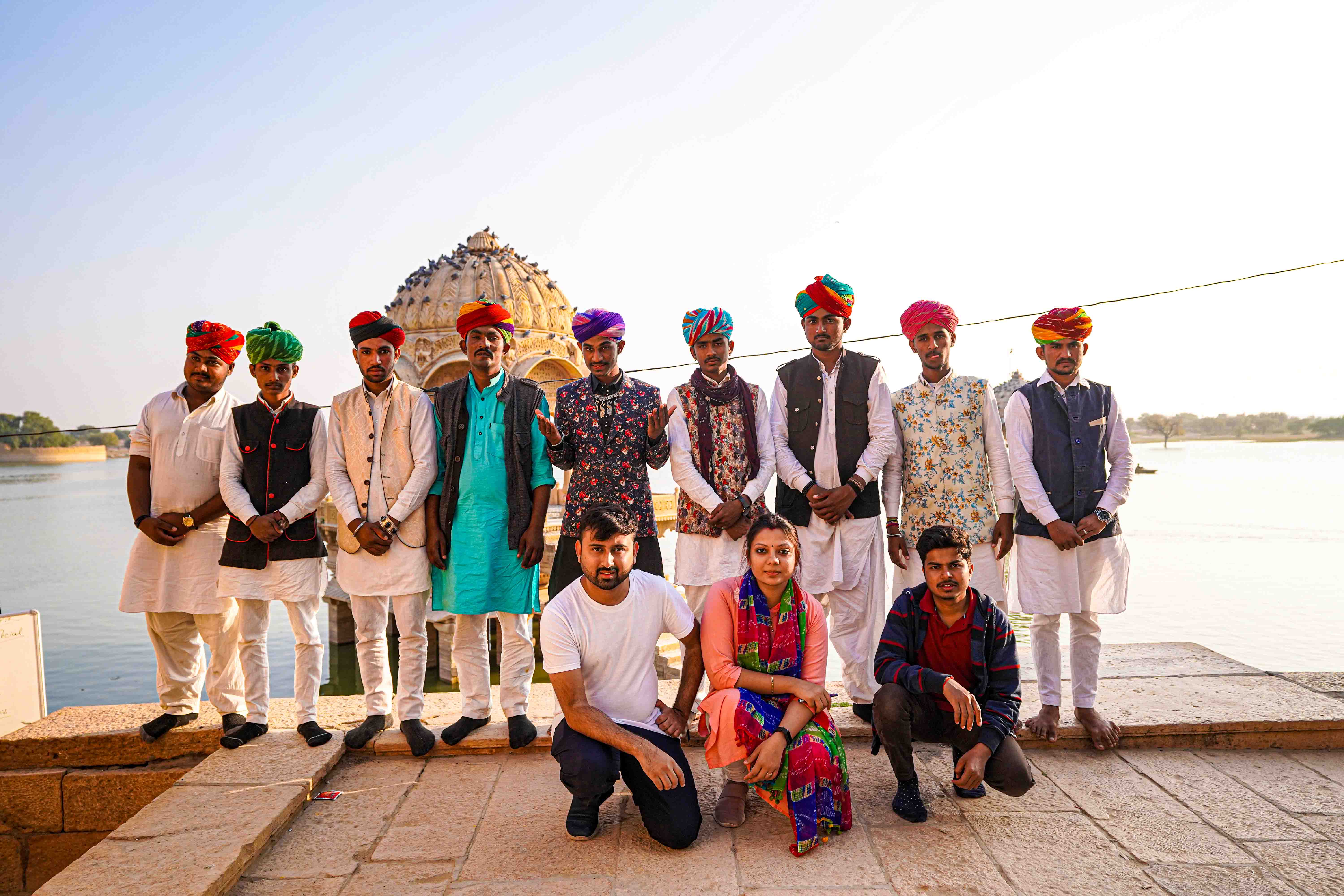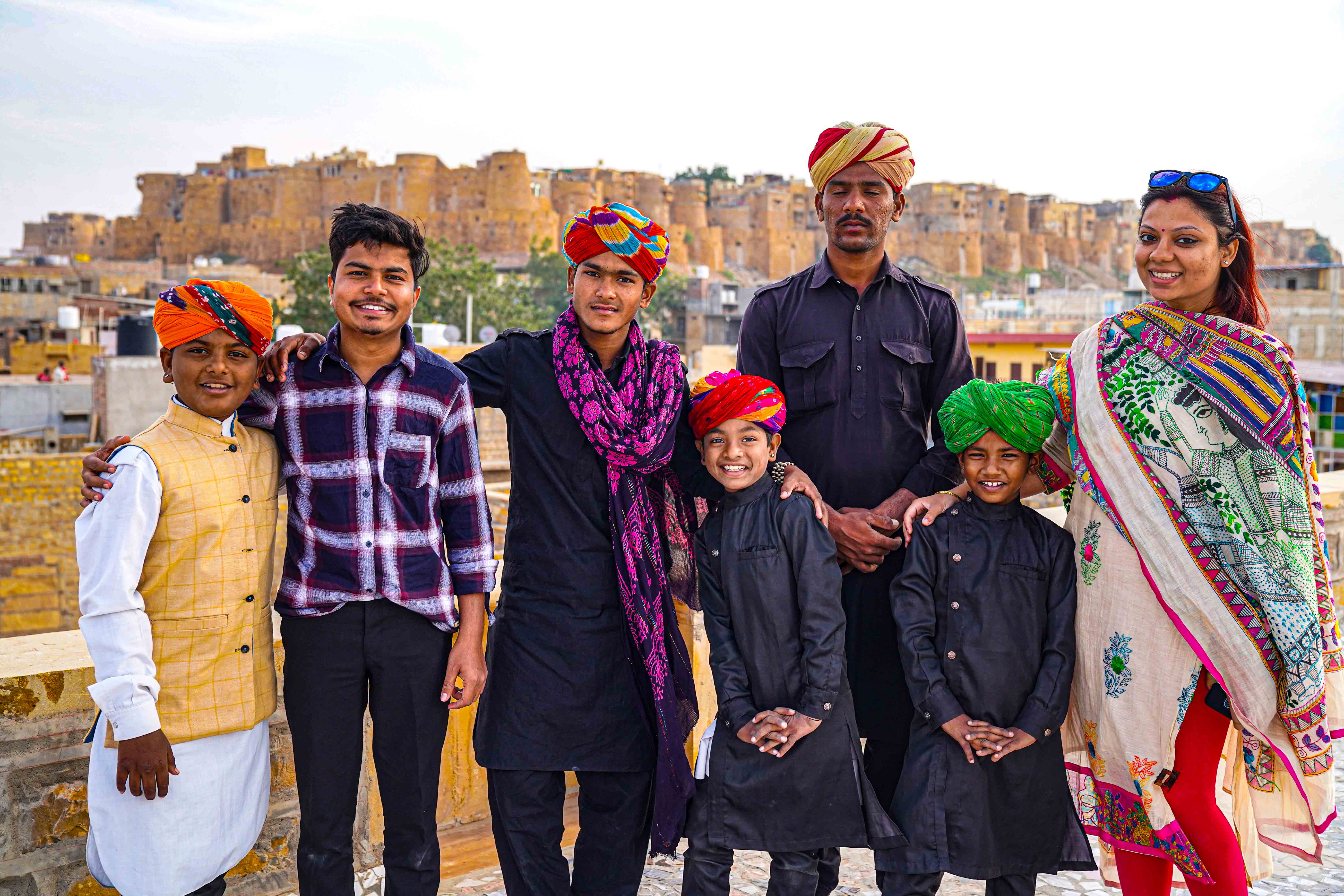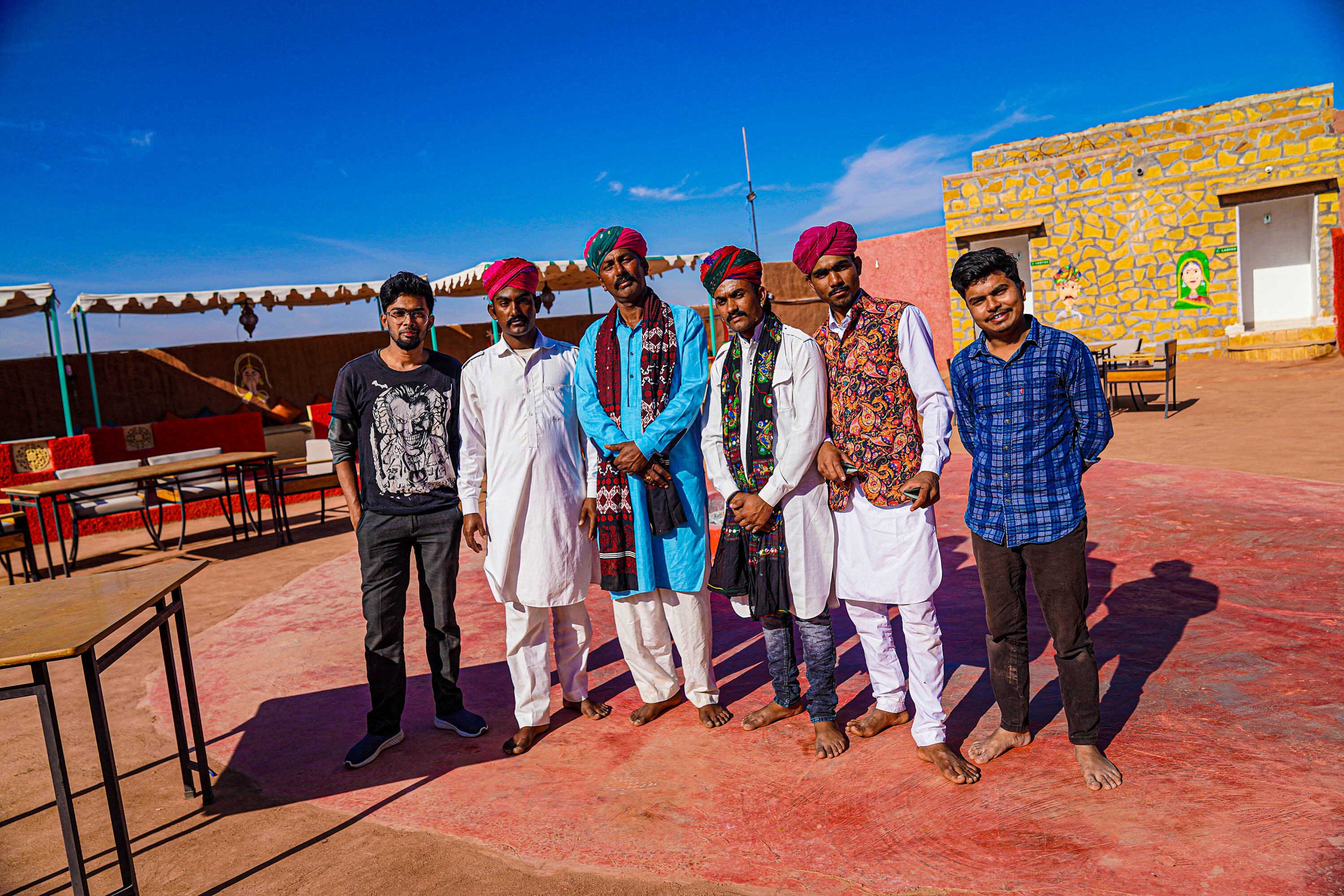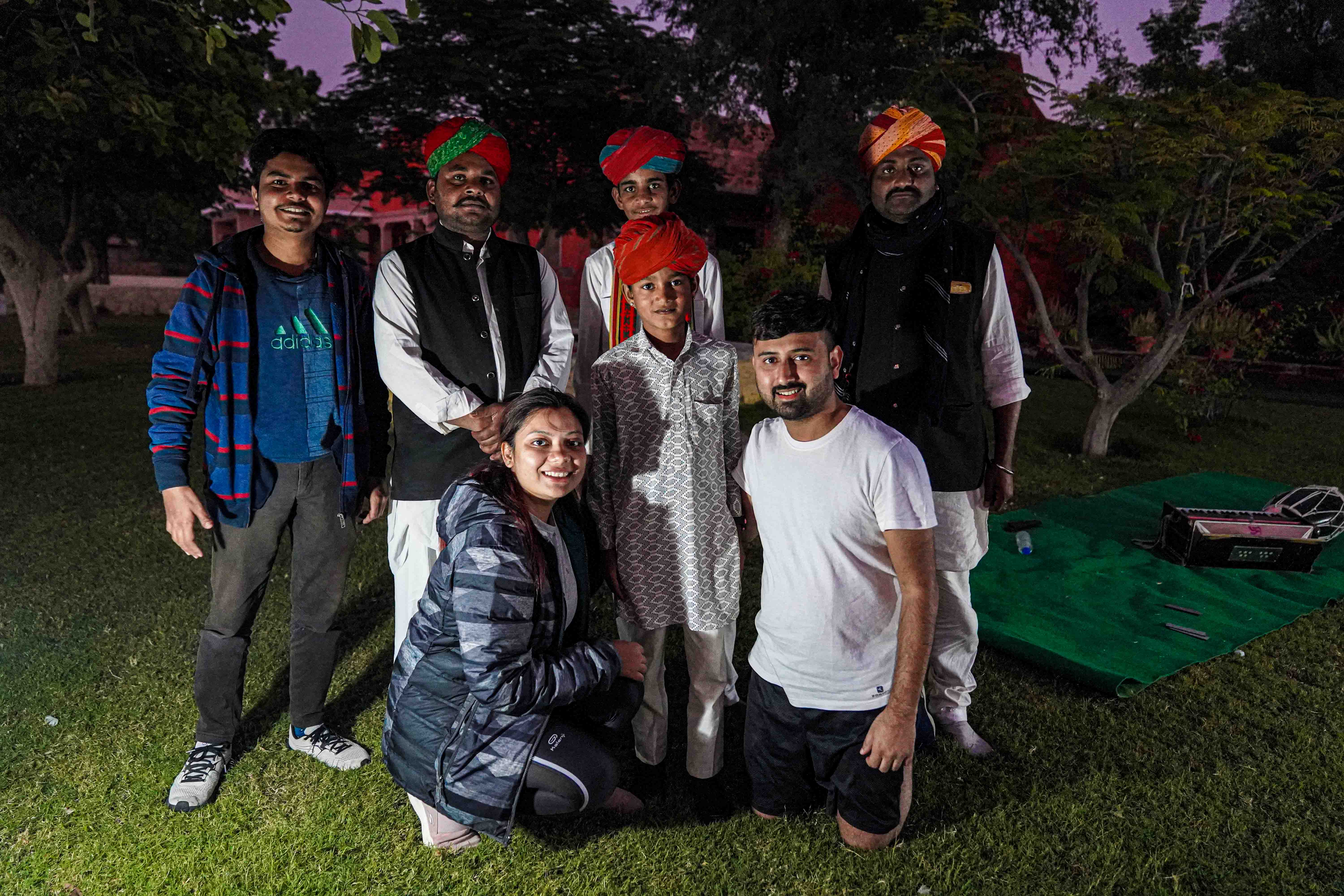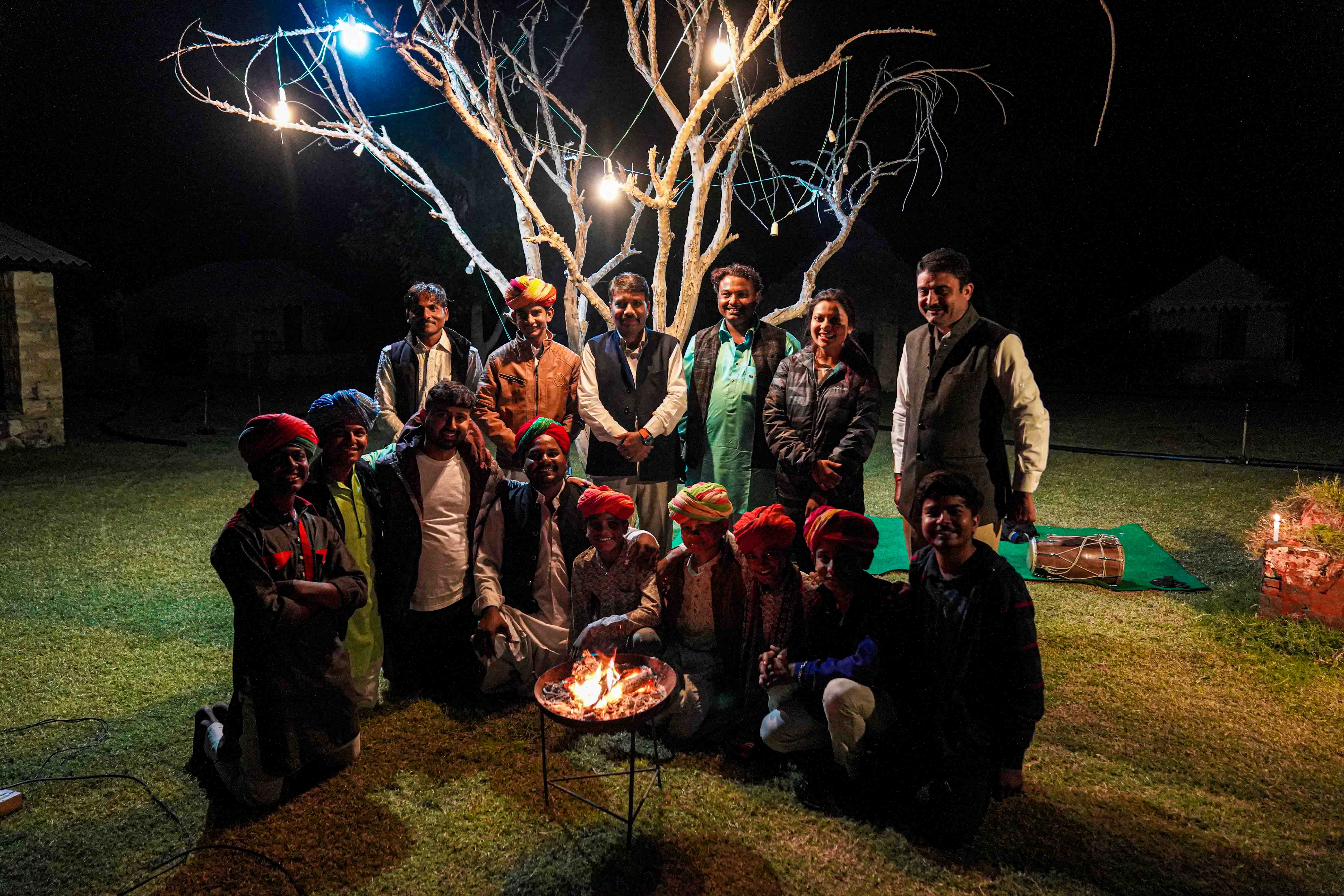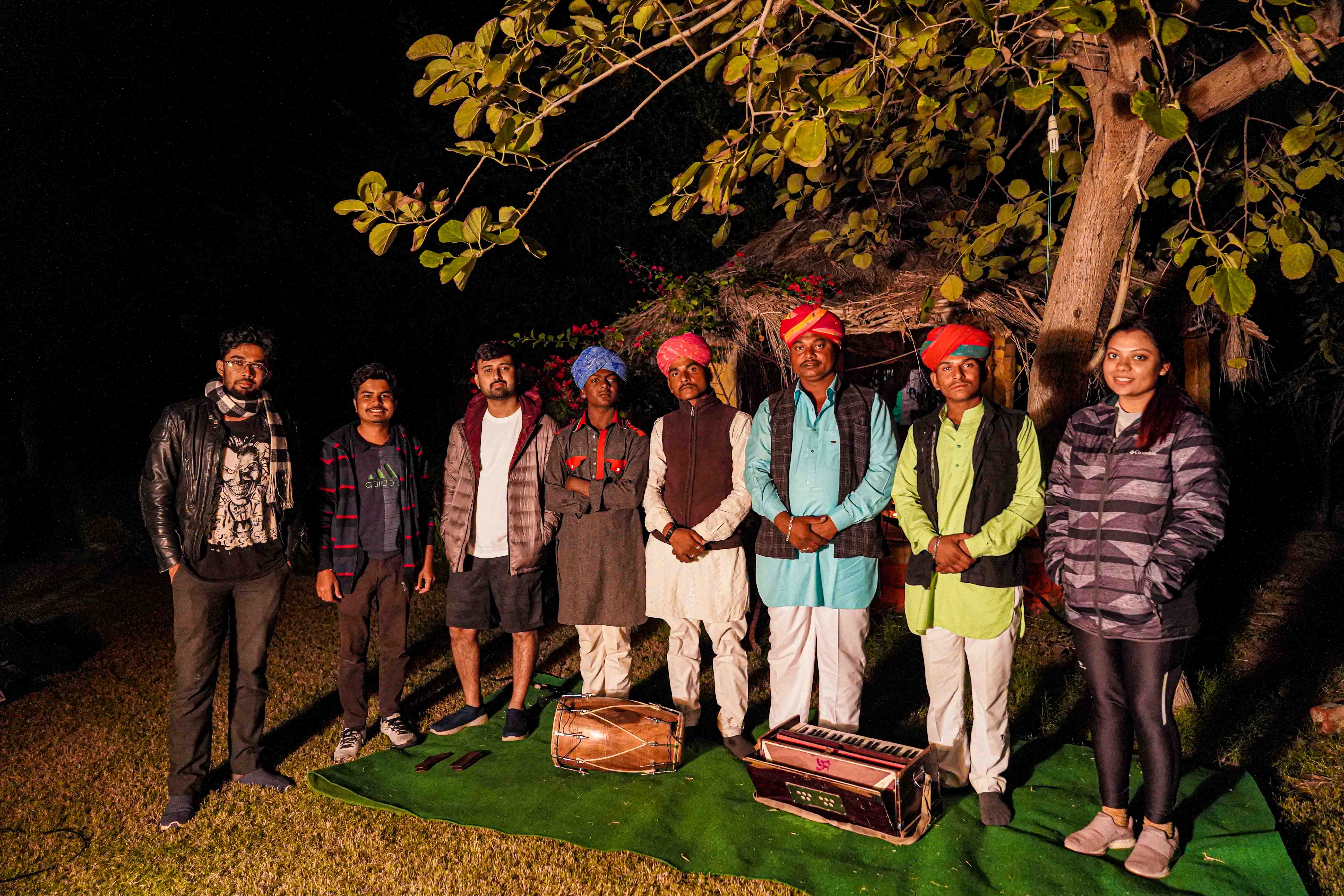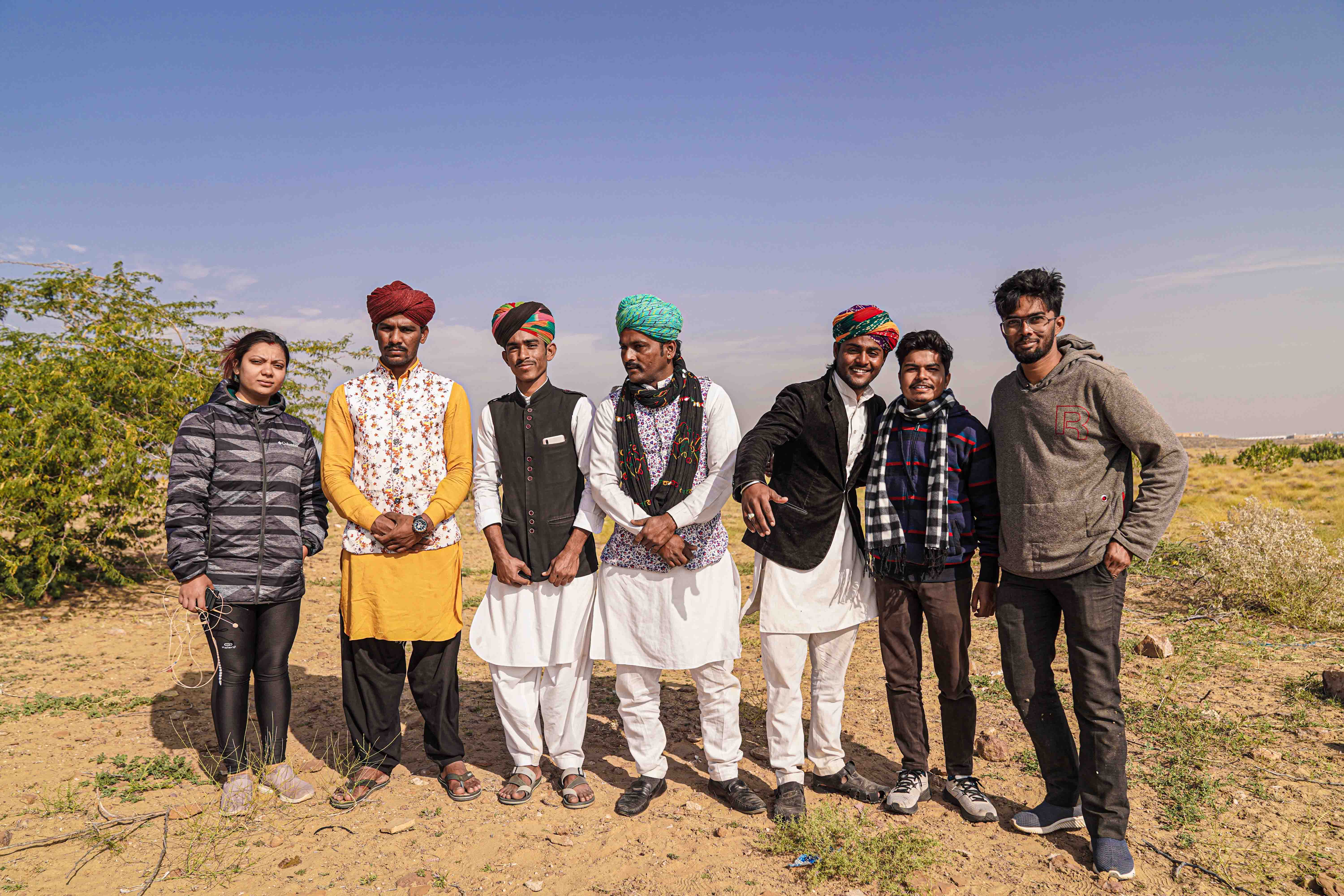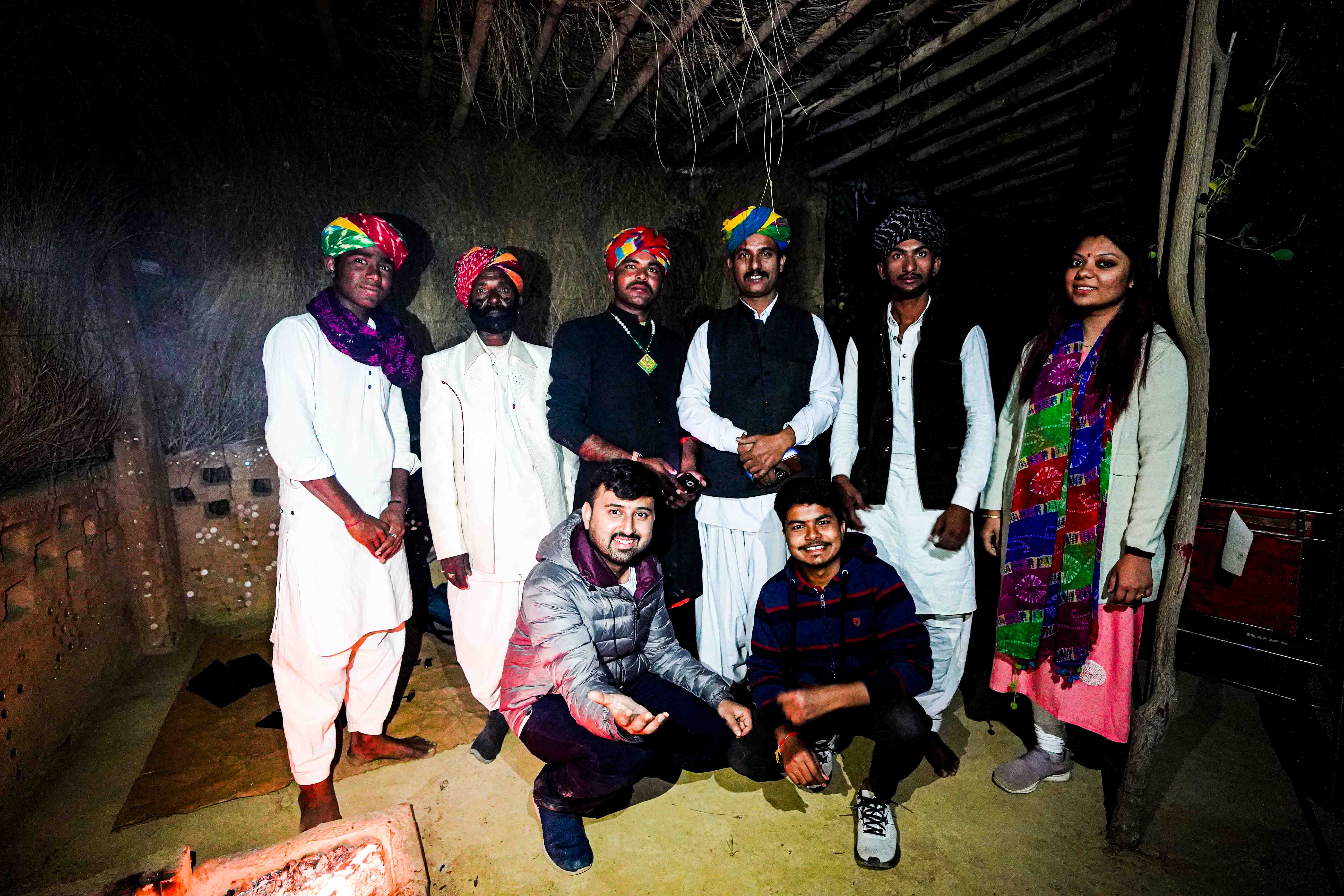
Jaha dikha bas chah tu hi
Bas raam ka naam hai
The one who has rhythm in his soul is near to god. Their culture is dependent on yajmaans. But want that it should not vanish.. feels like the younger generation is only acquainted with 25% of the music that this culture has to offer (yangrashaili, dhoda, bhaavan- traditional). wants them to focus on studies but also cultivate respect for them and learn it.
Pempo Khan is an artist from the Manganiyar community of Jaisalmer. He is a leading vocalist as well as a percussionist in the his musical group. All the musicians in this group formed by Pempo Khan are expert musicians from the same community which has an ages-old tradition to teach their children music since the beginning stages of their lives.
The Manganiyars have a deep-rooted history in Rajasthan as the Rajputs have been patrons to them for centuries. They teach their children music since the beginning stages of their childhoods and instil a great passion for the art form within them. Pempo Khan himself began learning at a very young age from his father, Gaffer Khan and developed a certain level of expertise in the musical form very early in his life. He also learned most of the ragas involved in classical music such as Maad and Bhairavi, and understands the technicalities that go into the composition and structure of a song.
Apart from following his passion for music, Pempo writes poetry in a regional language known as Dingal-Pingal. He has received quite a bit of support from his patrons, The Rathore family Senawaran near the Pokhran region. Due to the unfortunate lack of opportunities within the music industry folk musicians like Pempo Khan have to find other jobs in order to earn a livelihood, especially during offseason. He works as a housekeeper at a resort known as Gorbandh palace for the time being but wishes to pursue his passion for music as his profession. Through this art form, he aims to make an impact on the livelihoods of all the musicians like him and set their lives on a course for prosperity.
Kabir kuan ek hai, panihari anek
Bartan sabke nyaare nyaare
Banda pani sab me ek
Follows all religions. Feels that the value of the soul is above mere traditions and norms that religions bind us in. ‘ I am a Muslim. My name is fakir khan. But look at me. People say that I am a Rajput. Even though I perform at their events, I perform in mandirs, at the dargah, they sing about Shiva, Krishna, Mira. Makes bhajan as well.
Has issues with organizers many times as they embezzle money. He believes that there should be no mediator between Guru shishya parampara. He wants signing schools in India so that children can learn music without compromising with their studies.
Pempo Khan himself is deeply knowledgable about classical music and its components such as the ragas. He has gained this knowledge with the help of his father and passes it on to his children as their guru. He loves to sing the ‘Bhairavi’ raga, which can be sung at any time of the day. His talents and abilities show the true meaning of brilliance and dexterity. Using these abilities and a display of various emotions through his music, Pempo Khan wants to make an impact on the Manganiyar community’s presence in the world of music. The group also likes to work with different instruments and styles of music. They have played and composed a few songs along with western instruments such as guitar.
All of these artists, despite receiving the support of the royal Rajput families that reside in the region have to work in different professions during the offseason to get the financial support needed to feed their families. Through their musical talents, they wish to pursue a career in music and promote the Manganiyar culture across the world and create a sustainable environment wherein these musicians can work with their art forms and prosper.

